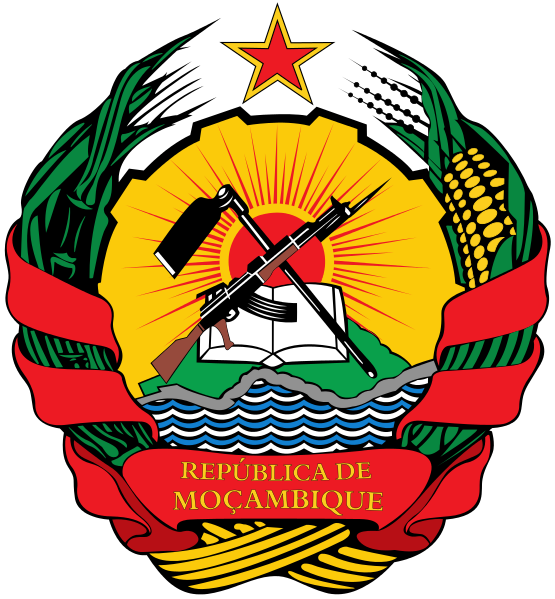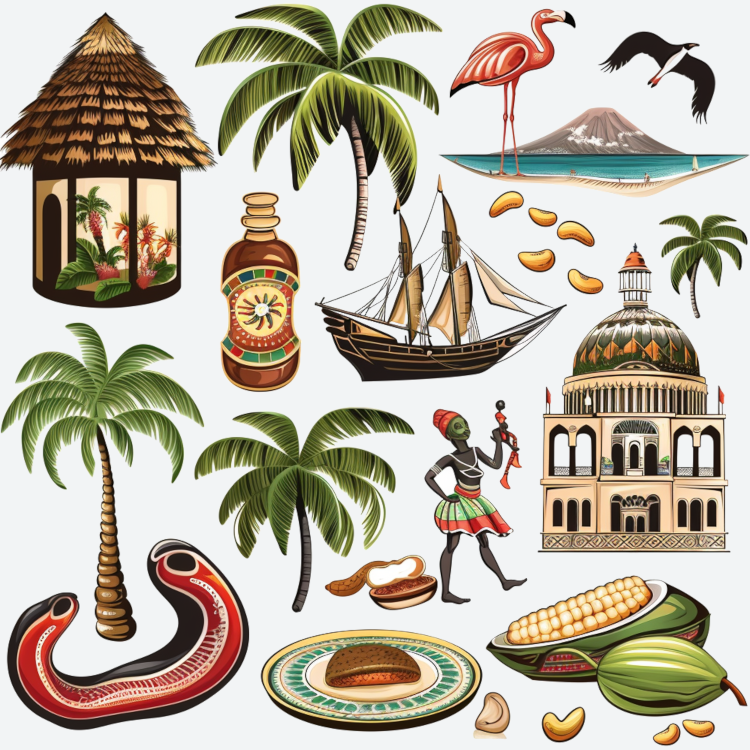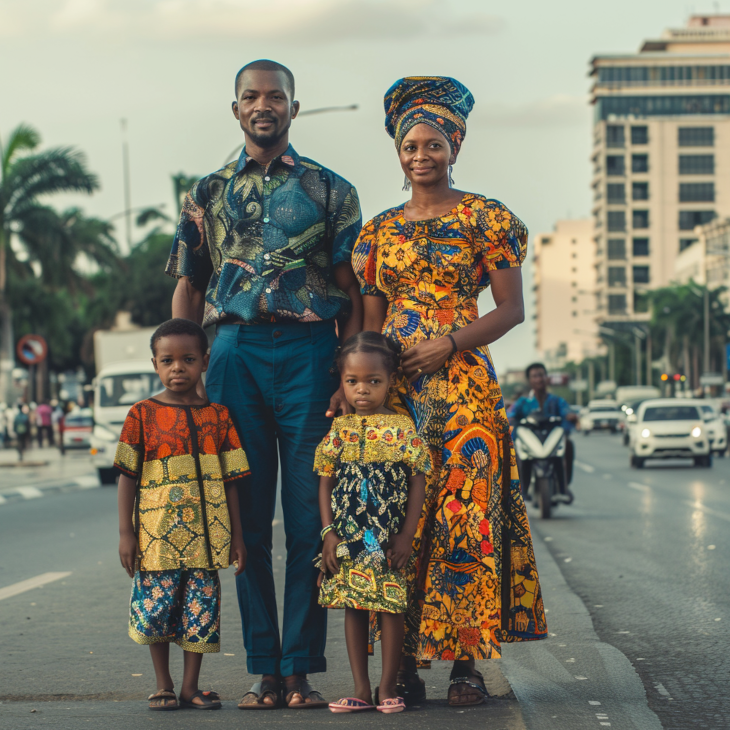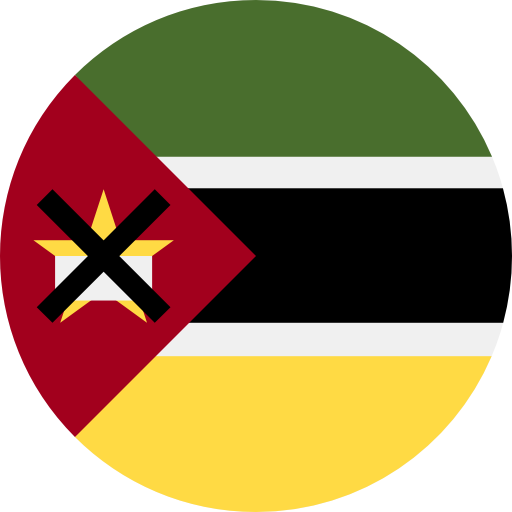About MZ

Location
Mozambique is a country located in southeastern Africa, bordered by Tanzania to the north, Malawi and Zambia to the northwest, Zimbabwe to the west, South Africa and Eswatini (formerly Swaziland) to the southwest, and the Indian Ocean to the east.
Capital
The capital city of Mozambique is Maputo.
Population
As of the latest estimates, Mozambique has a population of approximately 32.1 million people, making it one of the most populous countries in Africa.
Area
Mozambique covers a total land area of about 801,590 square kilometers (309,496 square miles), making it the 36th largest country in the world.
Official Language
The official language of Mozambique is Portuguese, which is inherited from its colonial past under Portuguese rule.
Government
Mozambique is a presidential republic with a multi-party system. The President of Mozambique serves as both the head of state and the head of government. The country has a unicameral legislature known as the Assembly of the Republic.
Independence
Mozambique gained independence from Portugal on June 25, 1975.
Currency
The currency of Mozambique is the Mozambican Metical (MZN).
Economy
Mozambique's economy is primarily based on agriculture, industry, and natural resources. The country is rich in natural resources, including minerals such as coal, titanium, and natural gas, as well as arable land for agriculture. However, Mozambique also faces challenges such as poverty, inequality, and vulnerability to natural disasters.
Natural Resources
In addition to minerals, Mozambique has significant agricultural potential, with fertile land suitable for the cultivation of crops such as cashews, sugarcane, cotton, and citrus fruits. The country also has an extensive coastline, supporting fisheries and tourism industries.
Climate
Mozambique has a tropical climate with distinct wet and dry seasons. The coastal areas experience high temperatures and humidity, while the interior regions have a more temperate climate. The country is prone to natural disasters such as cyclones, floods, and droughts.
Culture
Mozambique is culturally diverse, with a blend of indigenous African, Portuguese, and other influences. Traditional music, dance, art, and cuisine reflect this cultural diversity. The country is also known for its vibrant festivals and celebrations.
Religion
The majority of the population in Mozambique practices Christianity, with Catholicism and Protestantism being the dominant denominations. There is also a significant Muslim minority, as well as followers of indigenous African religions.
Infrastructure
Mozambique is investing in infrastructure development, including transportation, energy, and telecommunications, to support economic growth and development. However, infrastructure remains limited in some rural areas.
International Relations
Mozambique is a member of various international organizations, including the United Nations, the African Union, the Southern African Development Community (SADC), and the Commonwealth of Nations. The country maintains diplomatic relations with countries around the world and plays an active role in regional and global affairs.

National Items of Mozambique
Maputo
Maputo, the capital city of Mozambique, symbolizes the political, cultural, and economic heart of the country.
Mozambique Island
Mozambique Island is a UNESCO World Heritage site, known for its historical significance, colonial architecture, and cultural heritage.
Cashew Nuts
Mozambique is one of the world's largest producers of cashew nuts, symbolizing agricultural heritage, economic importance, and traditional farming.
Peri-Peri
Peri-Peri (or Piri-Piri) is a spicy sauce made from chili peppers. It symbolizes the rich culinary heritage and vibrant flavors of Mozambican cuisine.
Capulana
The Capulana is a traditional fabric worn by Mozambican women. It symbolizes cultural heritage, traditional fashion, and identity.
Makonde Carvings
Makonde carvings are traditional wooden sculptures created by the Makonde people. They symbolize rich artisanal heritage, cultural identity, and artistic craftsmanship.
Dhows
Traditional Dhows are sailboats used along the Mozambican coast. They symbolize maritime heritage, traditional fishing practices, and the importance of the sea.
Gorongosa National Park
Gorongosa National Park is a major conservation area, symbolizing Mozambique's commitment to biodiversity, natural beauty, and wildlife preservation.
Xima
Xima is a traditional Mozambican dish made from maize flour, similar to polenta. It symbolizes the rich culinary heritage and staple foods of Mozambique.
Marrabenta
Marrabenta is a traditional Mozambican music genre. It symbolizes cultural heritage, artistic expression, and social traditions.
Flamingos
Flamingos are commonly found in the wetlands and coastal areas of Mozambique. They symbolize the rich biodiversity and natural beauty of the country.
Mozambican Tea
Mozambican tea, particularly from the Zambezia region, symbolizes the agricultural heritage, economic significance, and cultural practices related to tea production.
Nyau Masks
Nyau masks are used in traditional ceremonies by the Chewa people. They symbolize spiritual beliefs, cultural heritage, and artistic craftsmanship.
Ilha de Moçambique
Ilha de Moçambique, or Mozambique Island, symbolizes historical heritage, colonial architecture, and cultural significance.
Mozambican Dances
Traditional Mozambican dances, such as the Mapiko dance, symbolize cultural heritage, artistic expression, and social traditions.
Prawn
Prawns are a significant part of Mozambican cuisine, symbolizing the rich marine resources, culinary heritage, and importance of fishing.
Mount Binga
Mount Binga is the highest mountain in Mozambique, symbolizing natural beauty, ecological diversity, and adventurous spirit.
Mozambican Coconut
Coconuts are widely grown and used in Mozambican cuisine, symbolizing agricultural heritage, tropical climate, and culinary traditions.
Zambezi River
The Zambezi River, one of Africa's major rivers, flows through Mozambique, symbolizing natural resources, ecological significance, and the lifeblood of the country's ecosystems.

This anthem celebrates Mozambique's beauty, unity, and aspirations for progress and prosperity. It reflects the spirit of patriotism and pride of the Mozambican people.
The national anthem of Mozambique is called "Pátria Amada" in Portuguese, which translates to "Beloved Fatherland" in English. Here are the lyrics in Portuguese along with an English translation:
Pátria Amada,
Flor divina de Moçambique.
Oh Pátria amada!
Nós saudamos os teus braços.
Nós juramos por ti
Que sempre te amaremos.
Pátria amada,
Nós glorificamos o teu nome.
Oh Pátria, nós juramos
Nós todos, teus filhos,
Levantar Moçambique.
Nossa bandeira sagrada
Balança triunfalmente,
Negra, amarela e verde.
Nós cantaremos vitória para ti,
Pátria amada.
Beloved Fatherland,
Divine flower of Mozambique.
Oh, beloved Fatherland!
We salute your arms.
We swear to you
That we will always love you.
Beloved Fatherland,
We glorify your name.
Oh Fatherland, we swear
We all, your children,
To lift Mozambique.
Our sacred flag
Waves triumphantly,
Black, yellow, and green.
We will sing victory to you,
Beloved Fatherland.


